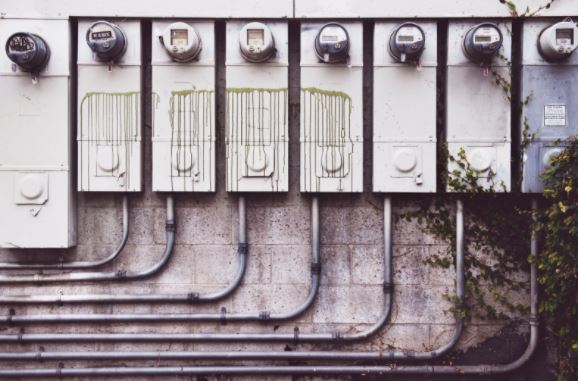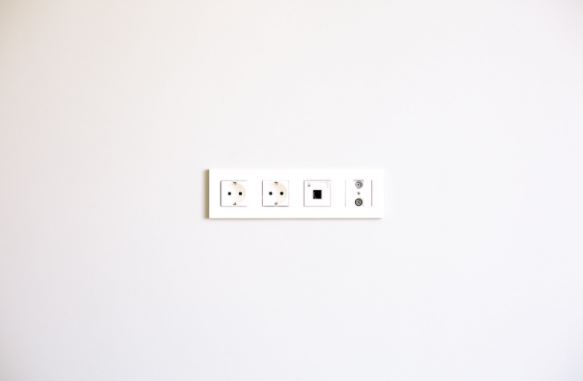Electricity is no longer a luxury in the world that we live in, but instead an essential and integral part of our lives. From how we prepare our food, to how we work, we are personally going to be using a lot of electricity in our daily lives. That being said, there are times when we run into electrical problems in our home that can create further problems. Some of these can easily be solved, while some of them require a little more finesse to deal with.

A word of caution when attempting to work with electricity yourself is that it can be extremely dangerous. If you are not trained to work with wires and understand what they do, you can end up either seriously or fatally injuring yourself. Therefore, if you have any serious electrical issues going on in the house, we highly recommend calling a professional to help you out.
While you definitely want to call an electrician to deal with any problems when they occur, prevention is what we should be practising the most. It can ensure everything stays functional in the house and can also save us money on expensive repairs. Here are some ways to easily make sure you don’t have problems with your fuses or circuit breakers.
Get a Maintenance Checkup
If you aren’t interested in learning about all the intricacies of the wiring in your home, you can simply call up an electrician to come in and take a look at everything to make sure that everything is working properly. These maintenance checks will help to spot any major issues before they occur. One of the main reasons this is important is because your main electrical panel might be outdated and not working as well as it should be. Having someone with professional tools there can spot it right away and then make the necessary changes before things grow into a bigger problem. This can mean changing out some of the fuses or replacing the box altogether. Regardless of what has to be done, having someone come in to do maintenance once a year is highly advised to stop any major problems.
Don’t Overload Your Box
The next thing that people do without realizing is that they overload their fuses or circuit breakers. Each breaker in the home is only capable of handling so many watts before it trips and shuts itself down as a safety feature. Within your home, there are going to be many different circuits, each connecting to a specific breaker. There should be an electrical plan within your home to show you what outlets are connected to which breaker. You can use this information to space out your more power-hungry appliances and objects to ensure nothing gets tripped. Things like a refrigerator and a heater for example both use a lot of watts, and when connected to the same breaker along with many other things, can cause a trip.
The other thing you have to be concerned about when it comes to overloading your circuits is things like holiday lighting. At Christmastime, people throw up all kinds of lights on the outside of their home without any consideration for their electrical panel. While the lights might work on their own, as soon as you turn on something within the same circuit, everything trips. If you are working with a circuit breaker this isn’t a big deal as all you have to do is disconnect the power and then flip the switch again. With fuses, however, you can blow a fuse and that can cause many more issues. Be careful when it comes to connecting things to your home as you don’t want to overload one circuit and cause a problem with the panel.
Investigate Short Circuits
Even if you have made sure to properly map out your circuits and ensure nothing overloads, you might encounter what is called a short circuit. Many people have heard the term but are not fully sure what it means. A short circuit is when an electrical current strays from the intended path due to a lack of resistance. This as a result can overload the wires and cause serious damage to either them or your electrical panel.
When a short circuit happens, unplug the device that caused it and then check to see if there is any damage to your electrical panel. If there is, you should instantly call an electrician to take a look. Attempting to flip the breaker or use the fuse again can result in serious issues. If you see no damage but things are still not working properly, it is also a sign that you should call up your electrician for help.
Make Sure You Install the Right Fuses
If you have a fuse box, you have to ensure that you are installing the right fuses for it. Fuses come in all types of shapes and sizes but many looks similar but in fact have different functions. If the wrong fuse has been installed into your box, the fuse would blow together and cause serious injuries to yourself or your property. Under no circumstances should you be going to the fuse box at this time to fix things yourself as things can get worse. In the event of this, you should instantly be calling an electrician to take a look.
To prevent this, you should always take a look at what fuses your panel needs to operate correctly and be sure that you are buying them. Don’t be afraid to ask for help at a store and double-check everything that you are purchasing to make sure that it is compatible. You should also consider switching over to a circuit breaker as these have safety features in place to prevent problems like this.

These are a few things that you have to know if you find yourself running into electrical problems in the house. While you might be tempted to fix some of the more serious issues by yourself, you should be calling an electrician. It is not worth the possible injuries. Start mapping out your home and its circuits and create a plan, so you can prevent any major electrical issues in the future.
Author: Allen Brown




 POSTED BY
POSTED BY 

